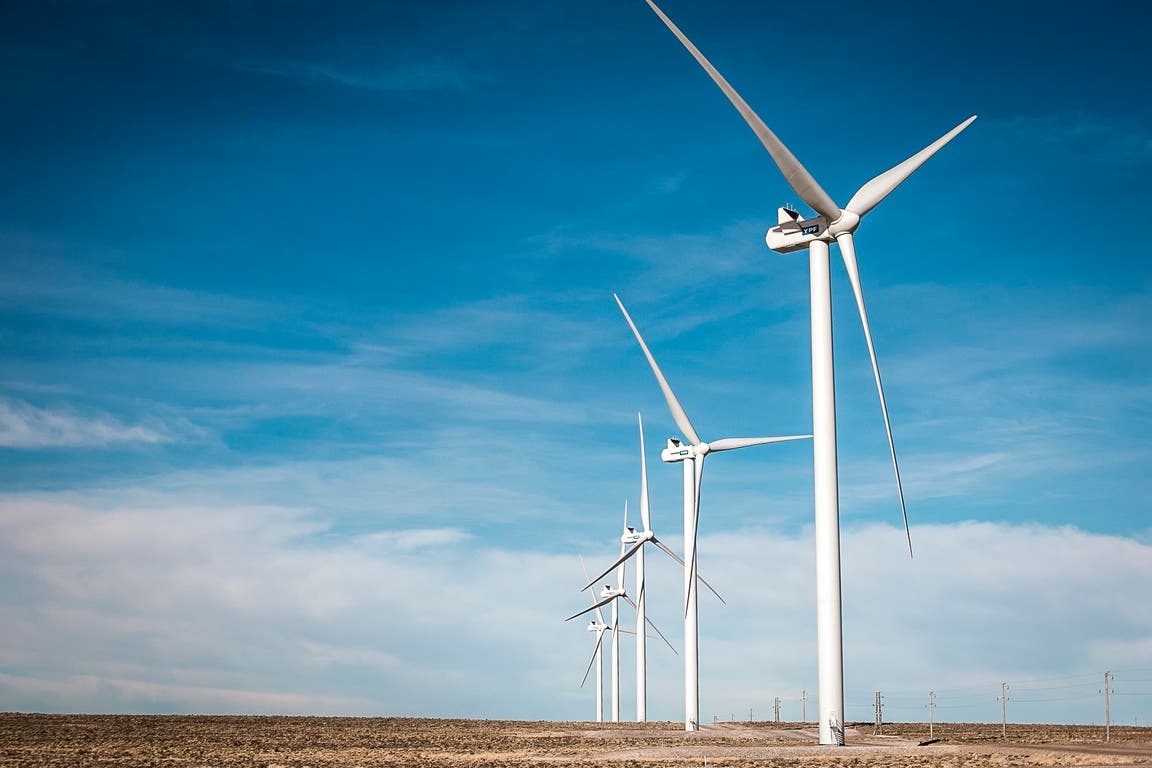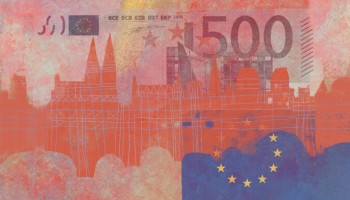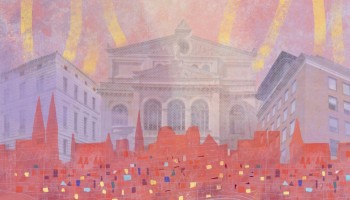In December 2015, Mauricio Macri, a civil engineer who had risen to fame as the head of the popular football club Boca Juniors and the mayor of Buenos Aires, was sworn in as the new president of Argentina.
The heir of one of the country’s richest families, Macri was seen by many as a pro-business leader who would help open Argentina to the world. But by the time his term ended in 2019, the country was mired in a deep recession.
While Mauricio was still president, his younger brother Gianfranco quietly set up a company in Luxembourg, a tiny country in the heart of Europe known for its low tax rates and financial secrecy.
This company, Lares Corporation S.A. SPF, may now be the key to unlocking a corruption scandal that has swirled around the Macri family for years.
An investigation by OCCRP and La Nación can reveal it was part of a chain of entities registered in Argentina, Spain, and Luxembourg used to buy and sell six wind farms in allegedly corrupt deals that are thought to have netted the former president and his relatives around US$70 million.
Argentinian law enforcement have since 2018 been investigating Gianfranco Macri and at least one official in his brother’s government in connection with the deal.
A source close to the investigation said the discovery of the new Luxembourg company could be a key piece of evidence in understanding how the Macris benefited from the scheme at a time when the probe has stalled.
“It is useful for us to complete the plot, the scheme of the business," said the source, who spoke on condition of anonymity.
A spokesperson for the Macris confirmed that the family used Lares Corporation to invest in renewable energy, but said the company had been properly declared in Argentina.”
OCCRP could not confirm if Lares Corporation had been disclosed to tax authorities, but the source close to the probe into the wind farm deals confirmed the company was unknown to investigators.
The Macris have previously said the wind farm deal was not “opportunistic buying and selling,” but an attempt to avoid a conflict of interest. The farms were sold due to a “need to divest from state-related businesses,” they told Argentinian news outlet Perfil.
The Macris’ Dirty Laundry

Suspect Sales
In 2009, the company Isolux Ingenieria, part of the Spanish group Isolux Corsan, obtained a concession to build four wind farms in Argentina’s southern Chubut province. By 2015, the year Macri came to power, only one of the four had been put into operation.
Mired in debt, by October 2016, Isolux had sold off its concessions to two Argentinian companies, Sidsel S.A. and Sideli S.A.
Remarkably, Macri’s government awarded Isolux two more wind farm concessions around the same time, which the Spanish company swiftly sold to one of the same buyers. The day the results of the tender were announced, Argentina’s energy minister at the time, Juan José Aranguren, held a press conference hailing the deal’s transparency.
“We are very satisfied with the impact of this process,” he told the assembled journalists.
“With transparency, absence of discretion, and clear rules maintained throughout the process, investors have shown that they are willing to trust Argentina and trust its authorities … to guarantee energy security.”
In July 2017, Isolux declared bankruptcy.
Within a year, Sidsel and Sideli, which had bought a total of six concessions for $25 million, sold them for $95 million, making a huge profit of around $70 million. A Chinese company bought five of them, and one went to an Argentinian company.
At the time, the Macris’ role in the sales was hidden behind several layers of corporate secrecy. That changed at the start of 2018, when Perfil published an explosive report showing the family’s trusted accountant had set up four of the companies involved in the deal.
They included Sidsel and Sideli, the two companies used to buy and sell the wind farms, as well as Usir Argentina, which controlled them and was reportedly set up just two weeks after Mauricio Macri took office.

Later articles revealed two Argentinian football stars, Carlos Tevez and Guillermo Barros Schelotto from Boca Juniors, the popular club which Macri had previously headed, had invested millions of dollars in the wind farms.
Perfil also reported in 2019 that the Macri family’s corporate setup was managed by a Luxembourg company named Rainbow Finance, through companies in Argentina and Spain.
Rainbow Finance appeared to be a dead end, as neither journalists nor law enforcement knew how the company was connected to the Macris. Although it was the holding company for the entities involved in the wind farm deal, no one from the family appeared on its paperwork.
OCCRP and La Nación’s investigation shows the connection was the company Gianfranco set up in Luxembourg while his brother was president, Lares Corporation S.A. SPF.
This discovery explains how the Macris were able to channel money into the deals without leaving a trace for investigators in Argentina. While Luxembourg launched a register of corporate beneficial ownership in 2019, it took months of work by Le Monde and OCCRP to scrape its millions of entries and make them fully searchable by the names of beneficial owners.
Although a Macri family spokesperson confirmed that Lares invested in the wind farms through Rainbow Finance, he contended that Rainbow Finance was “a shared investment fund,” in which not only Gianfranco Macri invested, and that he did not put in much. OCCRP could not confirm this. On paper Lares Corporation’s total assets have always ranged between 27,000 and 31,000 euros.
Asked why the Macris structured the deal through Luxembourg, a jurisdiction known for its low taxes and financial secrecy, their spokesperson said the family had wanted to avoid red tape and have more flexibility to seek financing or exit the business if necessary.
“It was not for tax reasons, but commercial reasons,” the spokesperson said.
”All the Natural Qualities”
The Macri Matrioshka
Congressman Rodolfo Tailhade, one of two lawmakers who filed a criminal complaint after the Perfil’s first article on the wind farm deals hit the stands, has a different take on why the Macris structured the deal through Luxembourg.
“The only justification for structuring businesses as a mamushka through offshore companies is the need to hide profits, evade taxes, and launder assets,” Tailhade told OCCRP.
“In Argentina it has not yet been possible to establish what has been the level of invoicing of these companies that invested in the wind farms, because the Macris do not present the corresponding documentation to the [authorities],” Tailhade said.
“This offshore company network prevents us from knowing what the profits and dividends of the business were.”
The source close to the investigation said the discovery of Lares Corporation could help revive the probe, which has stalled as investigators have struggled to get information from outside Argentina.
“We are ... aware of the existence of Rainbow in Luxembourg,” but not Lares, the source said.
“This information is very valuable for the investigation because it is almost impossible to obtain information from abroad during the pandemic.”
Investigators started examining the deal after Perfil’s first report in 2018.
In February 2019, a federal judge ordered Gianfranco Macri's tax records be released to help investigators trace the movement of money in connection with the purchase of the wind farms, according to local media reports.
The judge, Marcelo Martínez de Giorgi, was reportedly interested in a $5 million loan to Gianfranco made by an Argentinian company controlled by the Macris.
The source close to the probe said investigators are looking into the potential collusion between the companies the Macris owned and government officials, who may at the very least have looked the other way.
“This is what is being investigated as a minimum hypothesis,” the source said. “In addition to the fact that the presidential family did excellent business thanks to that.”
"The hypothesis is that [the Macris] were benefited by some official at that time to obtain that profit. Isolux may have acted as a cover, as a layer, to enable them to do their businesses secretly.”








